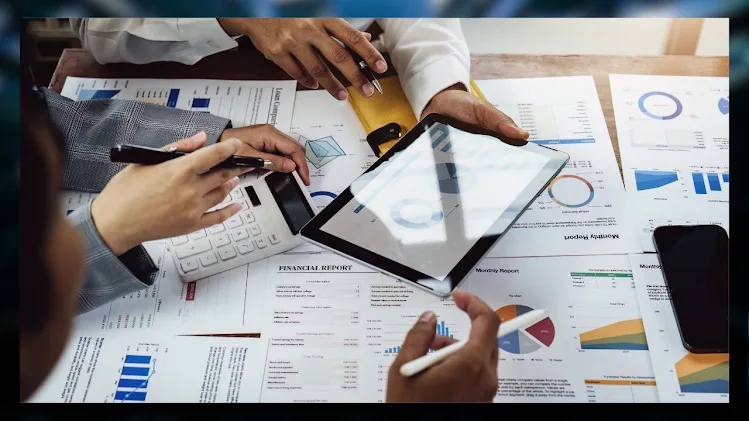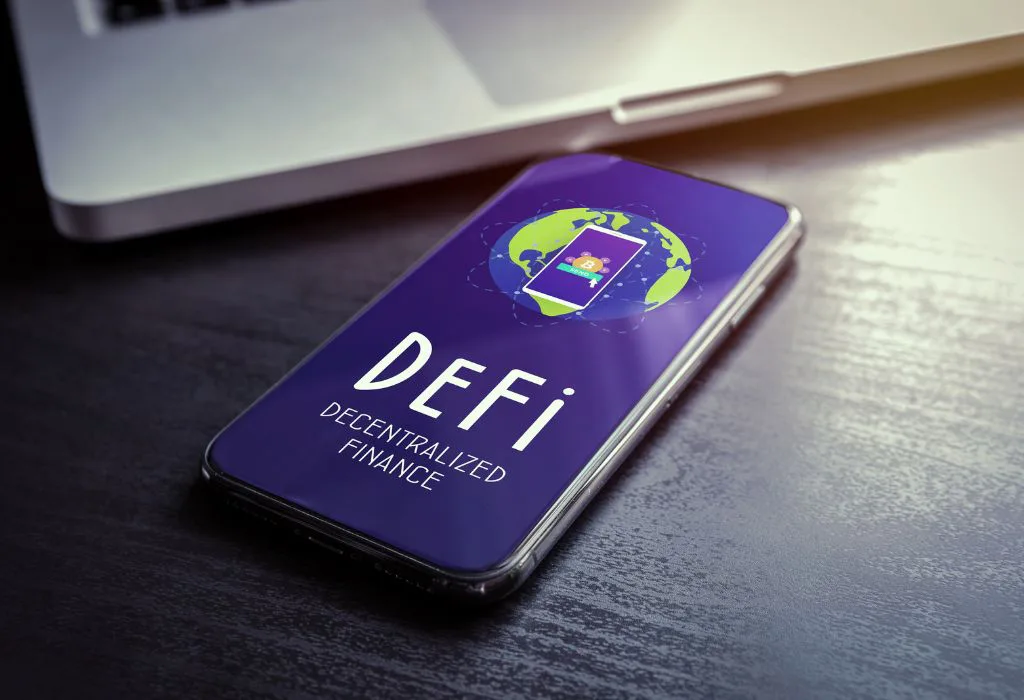Contents
ToggleIn today’s interconnected world, global logistics plays a crucial role in facilitating the movement of goods and services across borders. However, the traditional logistics industry faces various challenges, including inefficiencies, lack of transparency, and security concerns. This is where blockchain technology comes in. Blockchain is reshaping global logistics by revolutionizing supply chain management, enhancing transparency, and streamlining operations. In this article, we will explore the role of blockchain in reshaping global logistics and the benefits it brings to the industry.
Understanding Global Logistics
Global logistics refers to the management and coordination of the flow of goods, information, and finances across international borders. It involves complex processes such as transportation, warehousing, inventory management, customs clearance, and documentation. The efficiency and effectiveness of global logistics are crucial for businesses to compete in the global marketplace. However, the fragmented nature of the industry and the involvement of multiple stakeholders often result in delays, errors, and increased costs.

Read More: Blockchain meets NFTs Discover the Digital Ownership Revolution
Challenges in Global Logistics
The traditional global logistics industry faces several challenges that hinder its efficiency and effectiveness. Some of these challenges include:
- Lack of transparency: The lack of visibility and transparency along the supply chain makes it difficult to track and trace goods, leading to delays and increased costs.
- Manual and paper-based processes: Many logistics processes still rely on manual and paper-based documentation, which is time-consuming, error-prone, and susceptible to fraud.
- Limited interoperability: The lack of interoperability between different systems used by various stakeholders in the logistics ecosystem creates information silos and hampers efficient communication and collaboration.
- Security concerns: The global logistics industry is susceptible to fraud, counterfeiting, and theft due to the lack of robust security measures and centralized control.
The Role of Blockchain in Reshaping Global Logistics
Blockchain technology, with its decentralized and immutable nature, has the potential to address the challenges faced by the global logistics industry. By leveraging blockchain, the industry can achieve increased transparency, efficiency, security, and trust among stakeholders. Some of the key roles blockchain plays in reshaping global logistics include:
- Supply Chain Transparency and Traceability
Blockchain provides a transparent and immutable ledger that allows real-time tracking and traceability of goods throughout the supply chain. Each transaction recorded on the blockchain is securely stored and cannot be altered, providing an auditable and tamper-proof history of the product’s journey. This transparency enables stakeholders to verify the authenticity, origin, and condition of goods, reducing the risk of counterfeiting and ensuring regulatory compliance.
- Streamlining Documentation Processes
Blockchain simplifies and streamlines the cumbersome and time-consuming documentation processes in global logistics. By digitizing and automating document verification, such as bills of lading, customs declarations, and certificates of origin, blockchain eliminates the need for manual paperwork, reduces errors, and accelerates the clearance process. Smart contracts, powered by blockchain, can facilitate automatic verification and execution of contractual obligations, further expediting the logistics processes.
- Enhanced Security and Reduced Fraud
Blockchain’s decentralized and cryptographic nature brings enhanced security to global logistics. The distributed ledger ensures that transactions are recorded and verified by multiple parties, reducing the risk of fraud, unauthorized modifications, and data manipulation. Additionally, blockchain’s encryption and consensus mechanisms make it extremely difficult for malicious actors to tamper with the data, ensuring the integrity and confidentiality of sensitive information.
- Smart Contracts and Automated Transactions
Smart contracts, self-executing agreements written on the blockchain, enable automated and secure transactions in global logistics. These contracts automatically trigger actions when predefined conditions are met, eliminating the need for intermediaries and reducing reliance on manual processes. For example, smart contracts can automatically release payment to suppliers when goods reach their destination, streamlining the payment and settlement process.

Read more: Disrupting finance the DeFi revolution unveiled
Blockchain Adoption in the Logistics Industry
The adoption of blockchain in the logistics industry is gaining momentum as more businesses recognize its transformative potential. Several major players and industry consortia have already started exploring and implementing blockchain solutions to improve their logistics operations. Blockchain is being integrated with other emerging technologies such as the Internet of Things (IoT) to create a more interconnected and efficient logistics ecosystem.
Integration of Internet of Things (IoT)
The integration of blockchain with IoT devices is revolutionizing global logistics. IoT sensors and devices can collect and transmit real-time dataon the location, temperature, humidity, and other conditions of goods in transit. This data can be securely stored and shared on the blockchain, ensuring transparency and accountability throughout the supply chain. By combining blockchain and IoT, logistics companies can optimize routes, monitor inventory levels, and proactively address potential issues, leading to improved efficiency and reduced costs.
Overcoming Barriers to Blockchain Implementation
While blockchain offers immense potential for reshaping global logistics, there are challenges to its widespread adoption. Some of the barriers include regulatory concerns, interoperability issues, scalability, and the need for industry-wide collaboration. To overcome these barriers, governments, industry associations, and technology providers need to work together to establish common standards, develop regulatory frameworks, and foster an environment conducive to blockchain adoption.

Future Outlook of Blockchain in Global Logistics
The future of blockchain in global logistics looks promising. As the technology matures and stakeholders become more comfortable with its capabilities, we can expect increased adoption and integration across the industry. Blockchain has the potential to create a more transparent, efficient, and secure logistics ecosystem, enabling seamless global trade and fostering trust among participants.
Conclusion
Blockchain technology is revolutionizing the global logistics industry by addressing its inherent challenges and inefficiencies. With its decentralized and immutable nature, blockchain enhances transparency, streamlines documentation processes, improves security, and enables automated transactions. As the industry embraces blockchain and explores its integration with emerging technologies like IoT, we can expect a paradigm shift in how global logistics is managed. The future of global logistics is being reshaped by blockchain, unlocking new opportunities for businesses and driving economic growth.
FAQs
- How does blockchain enhance transparency in global logistics?
Blockchain enhances transparency in global logistics by providing a tamper-proof and auditable ledger of transactions. Each transaction recorded on the blockchain is securely stored and cannot be altered, enabling stakeholders to track and trace goods in real-time. This transparency reduces the risk of counterfeiting, improves regulatory compliance, and fosters trust among participants.
- What are the benefits of integrating blockchain with the Internet of Things (IoT) in logistics?
Integrating blockchain with IoT devices in logistics allows real-time monitoring and sharing of data on the condition, location, and other parameters of goods. This integration improves supply chain visibility, enables predictive analytics, and facilitates proactive decision-making. By combining blockchain and IoT, logistics companies can optimize routes, prevent delays, and enhance overall operational efficiency.
- How does blockchain address security concerns in global logistics?
Blockchain addresses security concerns in global logistics through its decentralized and cryptographic nature. The distributed ledger ensures that transactions are verified and recorded by multiple parties, reducing the risk of fraud and unauthorized modifications. Additionally, blockchain’s encryption and consensus mechanisms make it extremely difficult for malicious actors to tamper with the data, ensuring the integrity and confidentiality of sensitive information.
- What are smart contracts, and how do they benefit global logistics?
Smart contracts are self-executing agreements written on the blockchain. They automatically trigger actions when predefined conditions are met. In global logistics, smart contracts enable automated and secure transactions, eliminating the need for intermediaries and reducing reliance on manual processes. For example, smart contracts can automatically release payment to suppliers when goods reach their destination, streamlining the payment and settlement process.
- What are the challenges to widespread blockchain adoption in global logistics?
Widespread blockchain adoption in global logistics faces challenges such as regulatory concerns, interoperability issues, scalability, and the need for industry-wide collaboration. Overcoming these challenges requires the establishment of common standards, development of regulatory frameworks, and close cooperation between governments, industry associations, and technology providers. Collaboration and a shared vision are essential to realizing the full potential of blockchain in reshaping global logistics.
Read more: A Comprehensive Guide to Web3 Marketing Strategies and Real-World Examples










